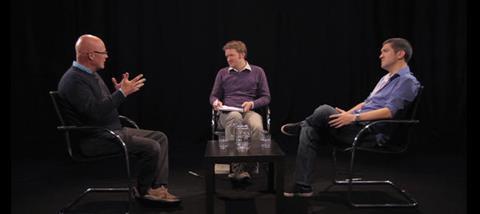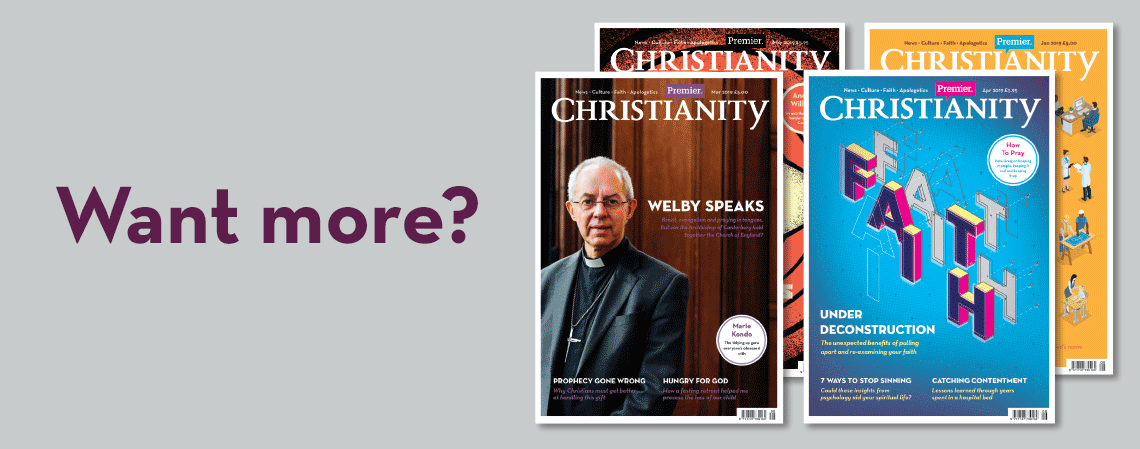
At the start of 2014 I wrote that this year would be ‘the year of the Bible’, by which I meant that honest and important debate about the Bible would make its way from scholarly settings to the grass roots.
Everywhere I go, people want to talk about the Bible: how we interpret it, how it is being abused, and how we need a better way of reading and preaching from it.
I also knew that people like Steve Chalke, Paula Gooder and Rob Bell were among those doing important speaking, blogging and writing on the Bible, and I hoped that my own book, We Make the Road by Walking, would add to the conversation.
THE LIABILITY OF INFALLIBILITY
When I speak on the subject of infallibility, I often say that it was necessary in the modern era for an ultimate authority to claim that it is never wrong. Predictably, modern-era Protestants claimed an infallible Bible and Catholics claimed an infallible pope.
But in the postmodern era, claims of inerrancy and infallibility are a liability. In the aftermath of colonialism, environmental exploitation, the Holocaust, slavery, apartheid and other exploits of the last few centuries, we have seen where excessive confidence leads.
Watch Brian McLaren and Andrew Wilson discuss their different views at Bible debate
Conservative Protestants and Catholics mistakenly double down on infallibility or inerrancy – whether of the Bible or the Pope – because they fear that if they abandon absolute confidence they will be left with no confidence at all.
SCRIPTURE AS A CONVERSATION
Meanwhile, many of us are exploring another path. We seek not absolute and incorrigible confidence, but a proper confidence born out of being teachable, and a hunger and thirst for justice and truth. This confidence is found in the Bible, not read as an inerrant or errant text, but as a powerful narrative of learning and growth. We want something greater than infallibility; we want corrigibility, something that is able to be corrected.
Drawing on the groundbreaking work of Walter Brueggemann, René Girard and Kwame Bediako, among others, a new generation is learning a fresh way of reading the Bible. Unlike old-time liberals who busied themselves with finding ‘contradictions’ in the Bible, and unlike fundamentalists who busied themselves with trying to explain away those ‘contradictions’, these Bible readers see a series of robust arguments among the many voices of scripture. Their statements and counterstatements are not contradictions; they are conversations. Wisdom emerges from their unfolding conversations over many generations.
One of the great benefits of this approach to the Bible is that it elevates Jesus. Jesus isn’t submerged into the text as merely one voice among many; a voice that carries no more authority than, say, the texts of Leviticus or Deuteronomy. In this approach, Jesus emerges as the ultimate word of God to whom all the scriptures point. As we read in John and Colossians, the invisible God is made visible not in words on a page but in a man on a cross: word made flesh.
JESUS THE RADICAL BIBLE SCHOLAR
As a result, Jesus not only saves us from sin; he saves us from unhelpful ways of reading scripture. He inserts himself into the ongoing arguments among his people, discerns God’s intent in their trajectory and extends the conversation into the future, often turning in new directions. When he says, ‘You have heard it said...but I say to you’ in Matthew 5:21-22, and when he challenges traditional Sabbath restrictions in Luke 14, he is challenging traditional understandings of the Bible and introduces what we might call ‘a new hermeneutical principle’: namely compassion.
Interpretations that lack basic human compassion, he suggests, are faulty interpretations. He is not merely tweaking conventional understandings, he is correcting them.
Paul is no less bold in following Jesus’ approach to scripture. When he says in Galatians 5:6 that ‘circumcision counts for nothing; the only thing that counts is faith expressing itself in love’, he is not tweaking Levitical laws, where circumcision is absolutely important. He is correcting them.
Jesus and Paul model a new way – a Christian way – of approaching the scriptures. Our first 2,000 years of Christian history have seen us steer shy of actually following that way. We seem to have preferred ‘the righteousness of the scribes and Pharisees’, even though Jesus called us to surpass their approach.
JESUS NOT ONLY SAVES US FROM SIN; HE SAVES US FROM UNHELPFUL WAYS OF READING SCRIPTURE
Scripture, then, offers us something far better than mere infallibility or inerrancy. It offers a record of ongoing learning, growth and corrigibility, leading us to Christ, who in turn entrusts us to the Holy Spirit who will, Jesus promised, guide us into more and more truth, as we are ready to bear it.
WALKING A NEW ROAD
‘What will keep us from making mistakes?’ people often ask, nervous about abandoning the incorrigibility of the old approach.
He communicated the logos, or logic, of God in his teachings. From his birth to his death and beyond...Jesus translates the logic or meaning or pattern or heart of God into terms we humans can understand: skin and bone, muscle and breath, nerve and action. From We Make The Road By Walking
‘Nothing,’ I answer. ‘But at least if we admit we are likely to be wrong, we will be more humble, more teachable, more guidable.’
After all, it’s not as if our traditional approaches have kept us from making mistakes. They didn’t work out so well if you were a woman, a non-white or non-European, or someone who dared to challenge conventional understandings. Think of Galileo, the abolitionists, or those that worked for women’s equality.
Jesus said that people often reject the new wine because they say the old is good enough. Similarly, many people are completely satisfied with traditional approaches to reading the Bible. But for those who aren’t satisfied, the good news is that your choice isn’t between the conventional way or nothing at all. My hope is that people can now be exposed to an approach that celebrates the Bible as something that is better than infallible.
BRIAN MCLAREN is an author, pastor and leading figure in the emerging church movement. We Make the Road by Walking (Hodder & Stoughton) is available now




























